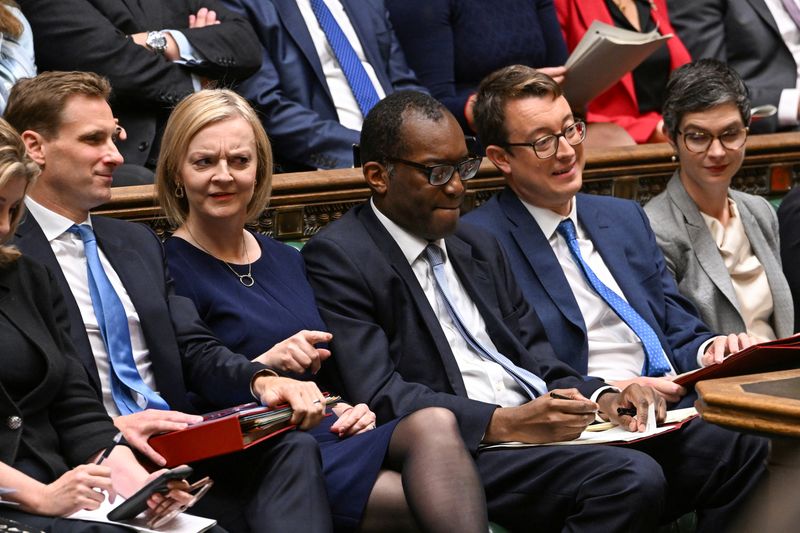By Geoffrey Smith
Investing.com -- U.K. stocks and bonds fell, along with the pound, on Wednesday after the International Monetary Fund sharply criticized the massive package of tax cuts announced last week by the new government.
Sterling opened in London nearly 1 cent lower than before the IMF's intervention, trading at $1.0679 by 03:30 ET (07:30 GMT). The FTSE 100 meanwhile opened down 1.9% at a new six-month low.
However, the most ominous move was again the bond markets where investors continued to dump Gilts, pushing the cost of the government's extra borrowing ever higher.
The yield on the benchmark 10-year Gilt rose another 11 basis points to 4.61%, a new 14-year high, while the 5-year Gilt yield rose 12 basis points to 4.81%.
The speed of the rise in bond yields has been breathtaking, wrecking the long-term financing calculations of every major actor in the economy from the government to businesses and mortgage holders. The 10-year yield has risen 2.84 percentage points in less than two months, the kind of move unseen in the last five decades.
Late on Tuesday, Reuters had quoted an IMF spokesman as saying that: "Given elevated inflation pressures in many countries, including the U.K., we do not recommend large and untargeted fiscal packages at this juncture, as it is important that fiscal policy does not work at cross purposes to monetary policy."
The comments came after former U.S. Treasury Secretary Larry Summers said he was "surprised that we haven't heard anything from the IMF," given that "a currency crisis in a reserve currency could well have global consequences."
Sterling's role as an international reserve currency has all but vanished in recent years as the U.K.'s relative weight in world GDP has shrunk. Even so, global markets have taken fright at the sight of a country that has traditionally maintained a high degree of financial stability resorting to such extreme measures to cope with the economic shocks of the pandemic, Russia's war in Ukraine and the soaring energy prices that have accompanied it.
Credit ratings firm Moody's also joined the chorus of criticism on Tuesday, saying that "Large unfunded tax cuts are credit negative."
Moody's said such a move will "lead to structurally higher deficits amid rising borrowing costs, a weaker growth outlook and acute public spending pressure stemming from the pandemic and a decade of austerity."
The volatility also appears to have done further damage to the Conservative Party's reputation for managing the economy. A YouGov opinion poll published after the 'mini-budget' showed the opposition Labour Party 17 points ahead of it - its biggest lead ever.
